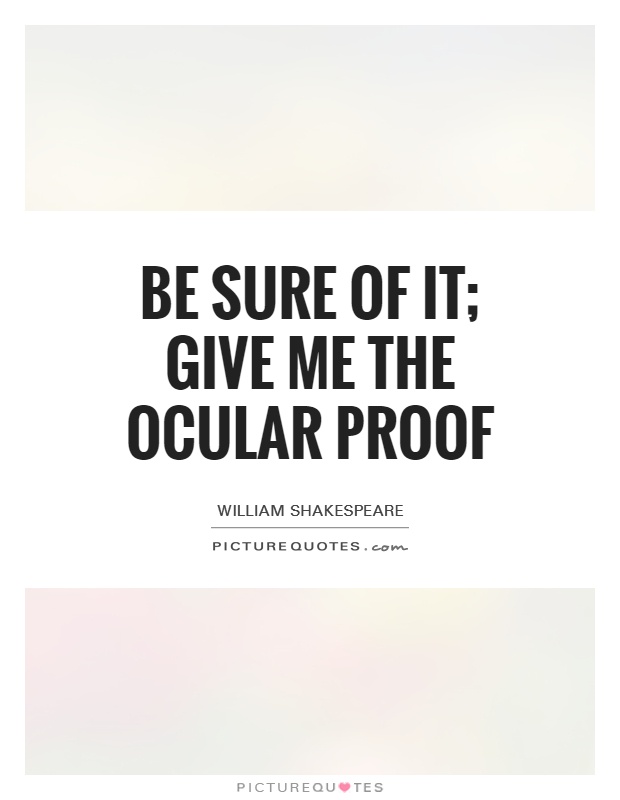Be sure of it; give me the ocular proof

Be sure of it; give me the ocular proof
In William Shakespeare's play "Othello," the character Othello demands "ocular proof" from Iago regarding his wife Desdemona's alleged infidelity. This phrase, "Be sure of it; give me the ocular proof," encapsulates the theme of appearance versus reality that runs throughout the play.Othello's request for "ocular proof" highlights his reliance on visual evidence to confirm his suspicions. In a world where deceit and manipulation are rampant, Othello seeks concrete proof that he can see with his own eyes. This desire for tangible evidence reflects his deep-seated insecurity and vulnerability, as he struggles to trust his own judgment in the face of Iago's cunning lies.
Iago, the master manipulator, understands the power of visual deception and uses it to his advantage. By planting seeds of doubt in Othello's mind and fabricating evidence of Desdemona's infidelity, Iago manipulates Othello's perception of reality. Othello's blind trust in Iago's words ultimately leads to his tragic downfall, as he becomes consumed by jealousy and rage.
The theme of appearance versus reality is further explored through the character of Desdemona. Despite her innocence and loyalty to Othello, she becomes a victim of his misplaced trust and Iago's deceitful machinations. Desdemona's purity and honesty are overshadowed by the false appearances created by Iago, highlighting the destructive power of deception and manipulation.
Ultimately, Othello's demand for "ocular proof" serves as a cautionary tale about the dangers of relying solely on appearances. In a world where truth is elusive and deception is rampant, Othello's tragic fate serves as a reminder to question what we see and seek deeper understanding beyond the surface. Shakespeare's exploration of this theme in "Othello" continues to resonate with audiences today, as we grapple with the complexities of truth, trust, and perception in our own lives.












 Friendship Quotes
Friendship Quotes Love Quotes
Love Quotes Life Quotes
Life Quotes Funny Quotes
Funny Quotes Motivational Quotes
Motivational Quotes Inspirational Quotes
Inspirational Quotes